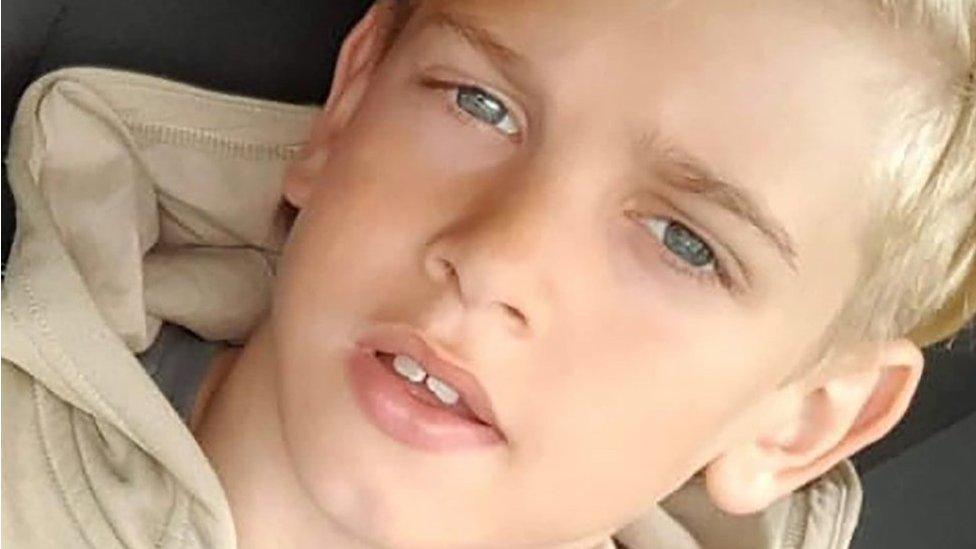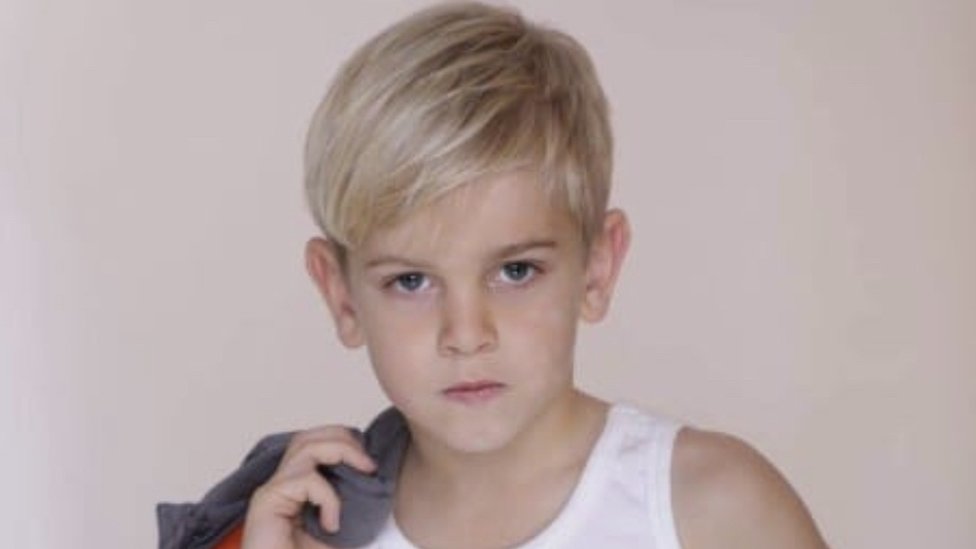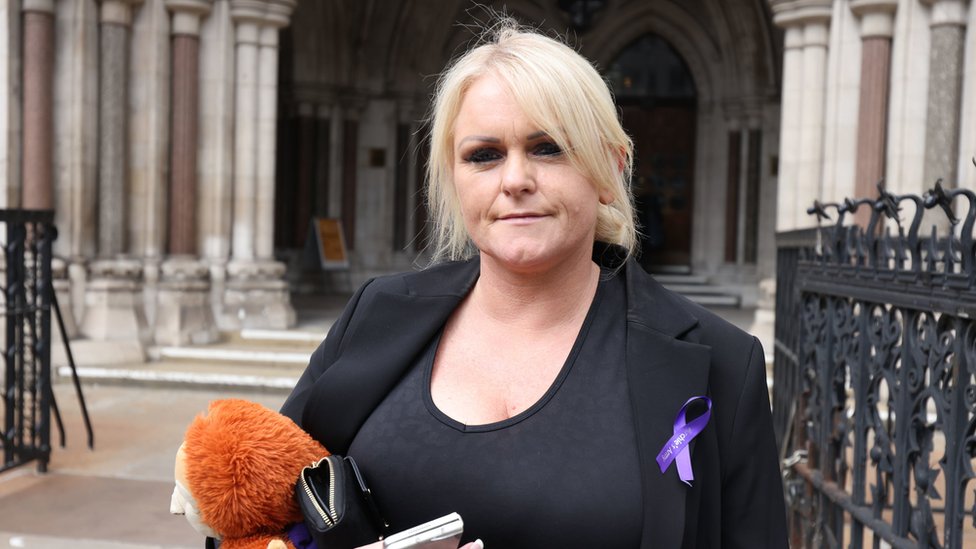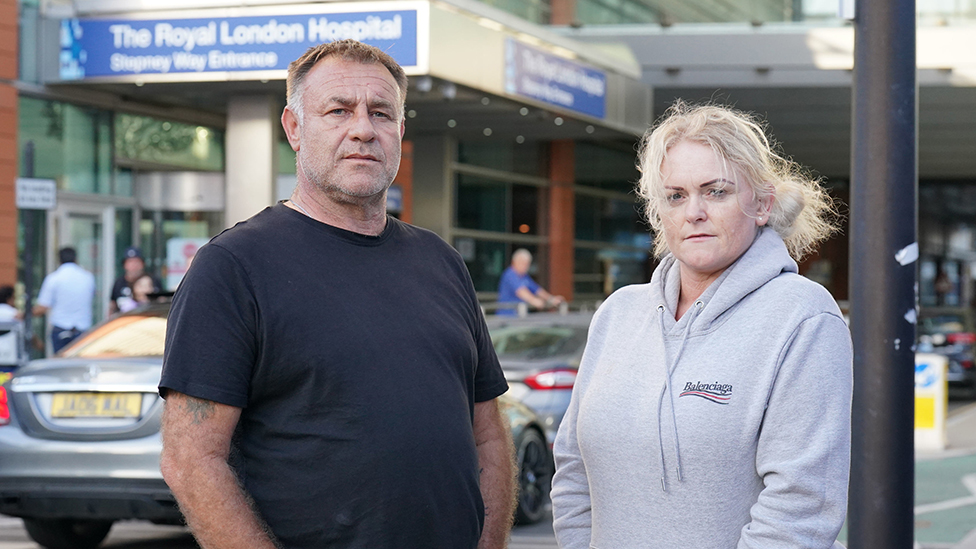Archie Battersbee: No parent must go through this again - family
- Published
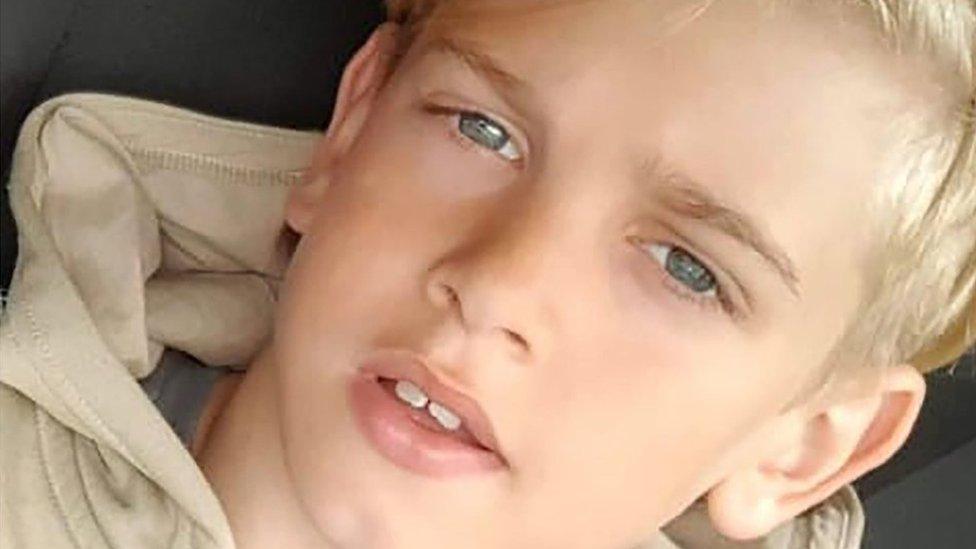
Archie Battersbee suffered brain damage in an incident at home on 7 April and did not regain consciousness
The family of Archie Battersbee have said nobody should go through what they had to and have called for an inquiry into the legal battle surrounding the withdrawal of his life support.
The 12-year-old, who was at the centre of a court row between his parents and doctors, died on Saturday.
In a statement, they said they were "stripped of all our rights".
Barts Health NHS Trust said Archie's treatment was withdrawn in line with court rulings about best interests.
The family's long legal battle to continue Archie's life-sustaining treatment ended when the European Court of Human Rights (ECHR) said it "would not intervene" with the UK courts' rulings, paving the way for support to be stopped.
They had hoped to move him to a hospice, but doctors had warned he was too unstable to move by ambulance and it would "hasten premature deterioration".
Archie had been in hospital since being found unconscious at his home in Southend, Essex, in April.
He suffered severe brain injuries and needed life-sustaining support, including mechanical ventilation and drug treatment. He never regained consciousness.
The family called for a public inquiry into the role of the NHS and the High Court Family Division in end-of-life cases.
Archie Battersbee's mother Hollie Dance: "I'm the proudest mum in the world"
His mother Hollie Dance and father Paul Battersbee had asked the European Court of Human Rights (ECHR) to intervene in the case as they fought for life support to be continued, but were told it fell outside its scope.
Three Court of Appeal judges supported the High Court ruling that life-support treatment should end.
His family then made bids to the High Court, Court of Appeal and ECHR to have him transferred to a hospice, but these were rejected.
In a court ruling, it was concluded that it was not in Archie's best interests to be moved.
Mrs Justice Theis said: "Archie's best interests must remain at the core of any conclusions reached by this court."
'Backed into a corner'
In a statement released on Sunday, the family said the pressure of the process had been "unbelievable".
"We want something good to come out of this tragedy and the horrendous experience we have been put through by the system," they added.
"No parent or family must go through this again.
"We have been forced to fight a relentless legal battle by the hospital trust while faced with an unimaginable tragedy.
"We were backed into a corner by the system, stripped of all our rights, and have had to fight for Archie's real 'best interests' and right to live with everything stacked against us.
"This has now happened too often to parents who do not want their critically-ill children to have life-support removed.
"There must be an investigation and inquiry through the proper channels on what has happened to Archie, and we will be calling for change."
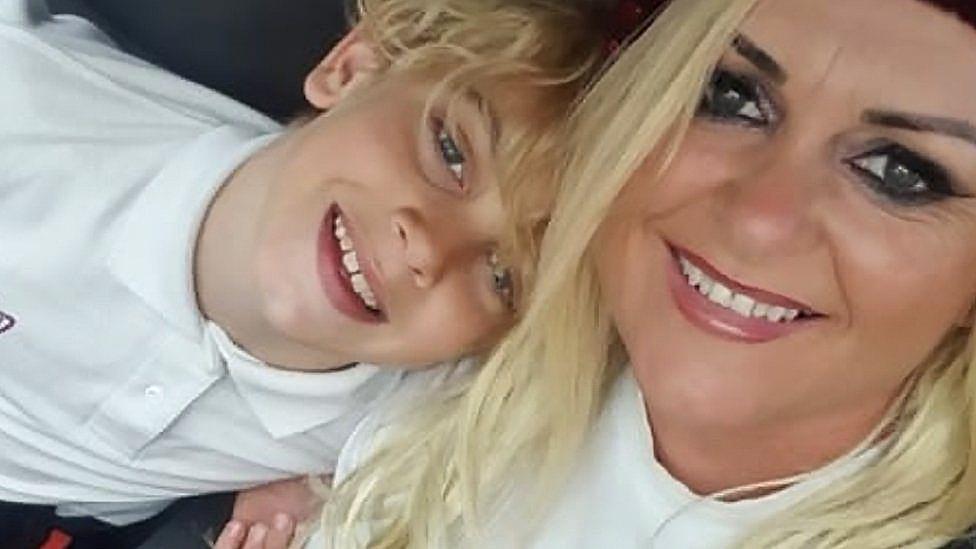
Archie's family say they want "something good to come out of this tragedy"
After Archie's death, the trust expressed its condolences to the family and said its staff had provided "high quality care with extraordinary compassion".
Barts said its staff had cared for him, often in "trying and distressing circumstances".
Baroness Ilora Finlay, professor of palliative medicine at Cardiff University, told the BBC: "The problem of the adversarial system, once it gets to court, is that it takes everybody's time away - from the family being at the bedside of the person who's dying and the clinicians it takes them away from the care of that patient and other patients - quite apart from the fact there are enormous costs involved for everybody.
"So anything we can do to try to avoid things escalating would be worth looking at.
"Of course there always will be some cases that do end up in court.
"It's not to say it's wrong to go down that route ever, but I do think it may be helpful if we can find a way of intervening early."
Ms Dance has previously called for reform through "Charlie's Law", a campaign by the parents of 11-month-old Charlie Gard, who were in a public battle with doctors in 2017.
Great Ormond Street Hospital said Charlie had an extremely rare genetic condition causing progressive brain damage and his life support should end, with the High Court ruling in its favour.
His family failed in a series of attempts to overturn the decision and since his death have called for parents to have more support and choice in the treatment of their child.

Related topics
- Published6 August 2022

- Published6 August 2022
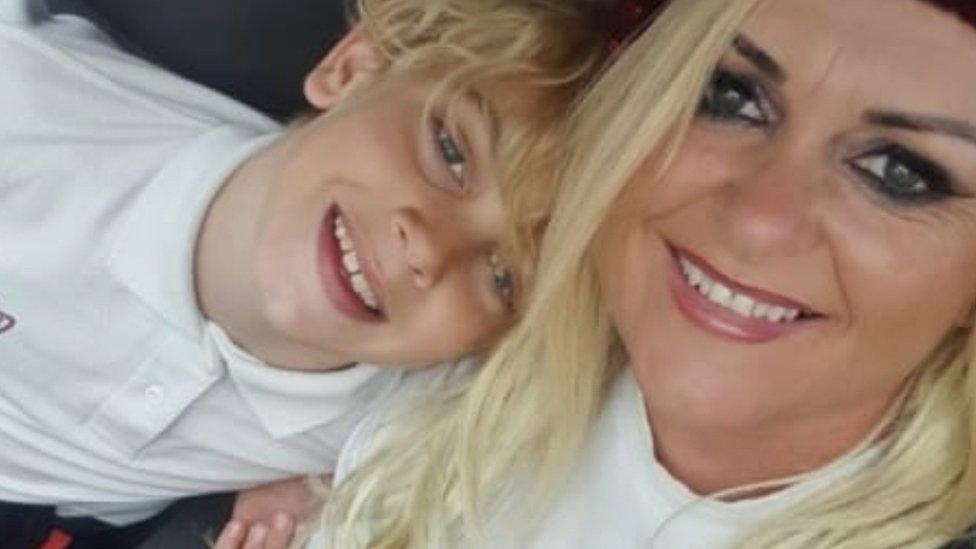
- Published6 August 2022
